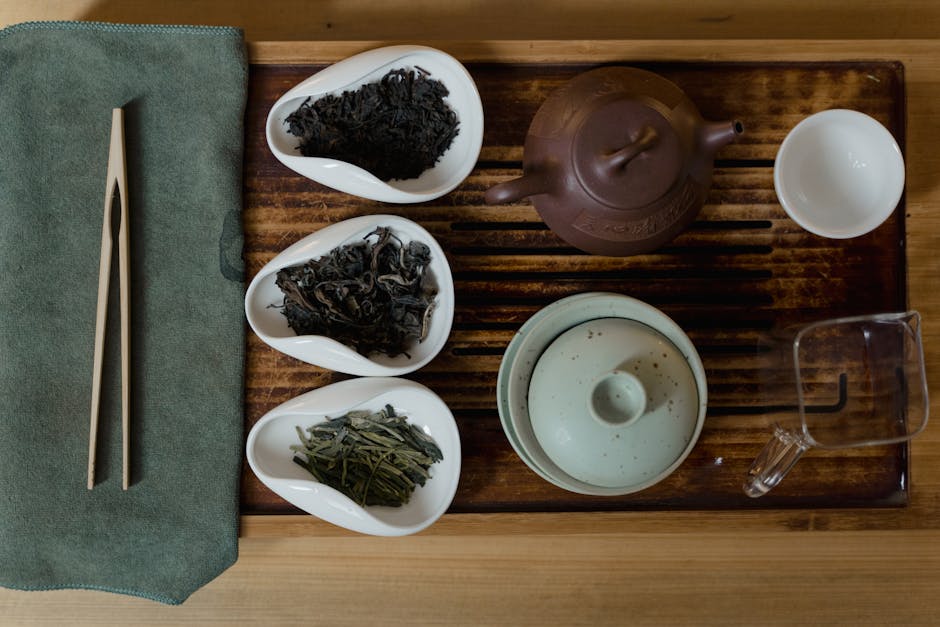Taiwanese Alishan Tea: Redefining Global Tea Culture in 2025
Introduction: Alishan Tea's Ascent to Global Prominence
In the ever-evolving world of tea, one variety has been steadily climbing the ranks, captivating connoisseurs and casual drinkers alike: Alishan tea. Originating from the misty, high-altitude mountains of Taiwan, Alishan tea is poised to redefine global tea culture by 2025. Its unique flavor profile, coupled with sustainable farming practices and a rich cultural heritage, makes it a standout contender in the international tea market. This article delves into the fascinating world of Alishan tea, exploring its history, cultivation, flavor characteristics, and its growing influence on the global stage.

The History and Terroir of Alishan Tea
Alishan, which translates to "Ali Mountain," is more than just a location; it's a symbol of Taiwan's dedication to producing exceptional tea. The history of tea cultivation in Alishan dates back to the late 20th century when farmers began experimenting with high mountain tea varieties. The unique terroir of Alishan, characterized by its elevation (ranging from 1,000 to 2,000 meters above sea level), cool climate, and fertile soil, provides the ideal conditions for growing premium tea leaves. The high altitude results in slower growth, concentrating the flavors and aromas within the leaves.
The specific cultivars grown in Alishan, primarily Oolong varieties like Chin Shin Oolong (Green Heart Oolong), contribute significantly to the tea's distinctive character. These cultivars are carefully selected for their ability to thrive in the challenging mountain environment and for their potential to produce complex and nuanced flavors.
The geographical location of Alishan, https://www.google.com/maps?q=Alishan+National+Scenic+Area, plays a crucial role in shaping the tea's quality. The area's frequent mists and high humidity contribute to the leaves' tenderness and prevent them from becoming overly bitter. This combination of factors creates a tea that is both delicate and intensely flavorful.

Flavor Profile and Characteristics
Alishan tea is celebrated for its smooth, creamy texture and its complex flavor profile. Unlike some bolder teas, Alishan offers a gentle sweetness with floral and fruity notes. The aroma is often described as reminiscent of orchids or lilies, with a subtle hint of fresh mountain air. The tea's low astringency makes it incredibly easy to drink, even for those new to the world of tea.
The specific flavor notes can vary depending on the oxidation level and roasting techniques used during processing. Lighter oxidation levels tend to produce teas with brighter, more floral flavors, while slightly higher oxidation can result in notes of honey or ripe fruit. Regardless of the specific processing method, Alishan tea consistently delivers a balanced and harmonious cup.
Here's a general overview of the flavor characteristics:
| Characteristic | Description |
|---|---|
| Aroma | Floral, orchid-like, fresh mountain air |
| Flavor | Sweet, creamy, fruity (peach, apricot), subtle vegetal notes |
| Texture | Smooth, silky, delicate |
| Aftertaste | Lingering sweetness, refreshing |

Brewing the Perfect Cup of Alishan Tea
To fully appreciate the nuances of Alishan tea, proper brewing techniques are essential. Here's a step-by-step guide to help you brew the perfect cup:
- Water Temperature: Use water that is around 195-205°F (90-96°C). Avoid using boiling water, as it can scorch the delicate leaves and result in a bitter taste.
- Tea-to-Water Ratio: A general guideline is to use about 3 grams of tea leaves per 6 ounces (180 ml) of water. Adjust the amount to your personal preference.
- Steeping Time: The first infusion should be relatively short, around 45-60 seconds. Subsequent infusions can be slightly longer, increasing by 15-30 seconds each time. Alishan tea can typically be steeped multiple times, with each infusion revealing different flavor nuances.
- Brewing Vessel: A gaiwan or a small teapot is ideal for brewing Alishan tea. These vessels allow for better control over the steeping process and make it easier to appreciate the aroma of the tea.
- Water Quality: Use filtered water whenever possible. The quality of the water can significantly impact the taste of the tea.
Experiment with different steeping times and tea-to-water ratios to find what works best for your palate. Alishan tea is a forgiving tea, but paying attention to these details will help you unlock its full potential.

Alishan Tea and Sustainable Practices
Many Alishan tea farmers are committed to sustainable and organic farming practices. This commitment not only protects the environment but also contributes to the quality of the tea. Sustainable farming methods help to preserve the biodiversity of the Alishan region and ensure the long-term health of the tea plantations. These practices often include:
- Organic Fertilizers: Using natural fertilizers, such as compost and animal manure, instead of synthetic chemicals.
- Pest Control: Employing natural pest control methods, such as introducing beneficial insects or using organic pesticides.
- Water Conservation: Implementing water-saving irrigation techniques to minimize water usage.
- Soil Conservation: Using cover crops and other methods to prevent soil erosion and maintain soil fertility.
Consumers are increasingly seeking out products that are produced in an environmentally responsible manner. Alishan tea's commitment to sustainability gives it a competitive edge in the global market and aligns with the growing demand for ethically sourced goods.

Alishan Tea's Growing Global Influence
As we approach 2025, Alishan tea is poised to make an even greater impact on the global tea culture. Several factors contribute to its growing popularity:
- Increased Awareness: Growing awareness of Taiwanese tea in general, driven by targeted marketing and educational initiatives.
- Rising Demand for High-Quality Tea: Consumers are increasingly willing to pay a premium for high-quality, artisanal teas.
- Online Retail and E-commerce: The rise of online retail platforms has made it easier for consumers around the world to access Alishan tea. Companies like Amazon and specialized tea retailers are offering a wider selection of Alishan teas than ever before.
- Tea Tourism: The Alishan region is becoming an increasingly popular tourist destination, attracting tea enthusiasts from around the world who want to experience the tea culture firsthand.
Alishan tea's unique flavor profile, combined with its commitment to sustainability and its rich cultural heritage, positions it as a leader in the global tea market. As more people discover the delights of this high-altitude brew, its influence on tea culture will only continue to grow.
In conclusion, Alishan tea is more than just a beverage; it's an experience. From its misty mountain origins to its delicate flavor and sustainable production, Alishan tea embodies the best of Taiwanese tea culture and is set to redefine the global tea landscape in the years to come. Whether you're a seasoned tea connoisseur or a curious newcomer, Alishan tea is definitely worth exploring.

So, raise a cup to Alishan tea – a taste of Taiwan's future, brewed with tradition and destined to delight the world.
-Hot Water
Comments
Post a Comment